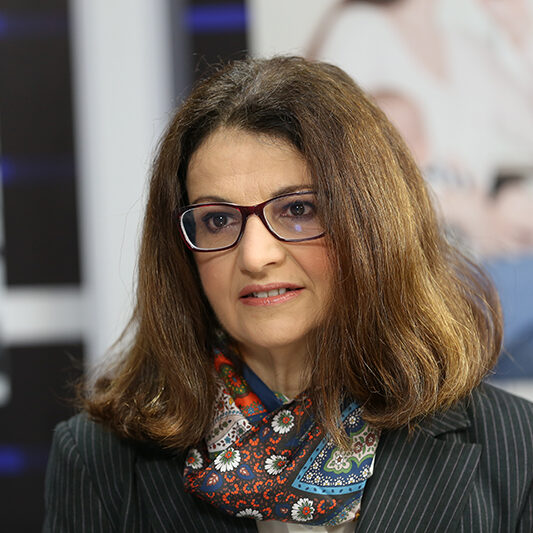The ability to reason has been the hallmark of humanity for centuries. It has been used as the foundation for numerous ethical systems. Yet using reason as humanity’s signature feature ostracises those with severe to profound cognitive disabilities, giving moral philosophy ableist undertones. THINK speaks with Dr Kurt Borg and Prof. Anne-Marie Callus to discuss.

Photo by James Moffett

Photo by Mario Mintoff (Photocity o.b.o. MEA)
Traditionally, laws and morality take broad brushstrokes as their starting point. For example: all humans have the ability to reason, or all animals have the ability to feel pain. While this approach has allowed philosophers and legislators to develop complex moral and legislative systems, these generalisations tend to overlook nuances and specific exceptions.
For example, the statement ‘All birds can fly’ might seem correct at first glance; however, this would imply that emus, ostriches, and penguins are not birds. Similarly, the statement ‘All humans have the ability to reason’ overlooks those with severe to profound cognitive disabilities. For a philosophy that tries to create a suitable moral system, this is quite problematic.
Ableism and Speciesism
For some, there is a clear distinction between humans and animals. The foundation for this thinking is Aristotle’s Great Chain of Being, which places humans at the top of the chain, followed by animals, plants, and minerals. Humans are distinct from animals thanks to our ability to reason.
The crux of the problem is how do we ethically distinguish between animals and humans, while still affording those with severe to profound cognitive disabilities the same rights as humans (ie: not creating two tiers of human beings)?
Animal rights activists and philosophers, including Peter Singer and Jeff McMahan, argue that there are some animals which have a higher capacity for reason than some humans. Using reason – and by extension, language (as language is often used to gauge the ability to reason) – as the grounds for moral philosophy would mean that certain animals that display features of intelligence, such as great apes and octopuses, should also be afforded the same ethical rights as humans. In contrast, ‘if we raise the standard for language to exclude the signs used by signing apes, then we would have to say that some humans at profound and severe levels of cognitive disability don’t have language either,’ according to Singer. The claim here is that there are some animals who are more intelligent than humans at profound and severe levels of cognitive disability. For example, McMahan argues that fetuses and individuals with certain impairments do not have the same moral status as ‘an adult human being with normal psychological capacities.’
Prof. Anne-Marie Callus, Associate Professor with the Department of Disability Studies, UM, points out that ‘this approach to utilitarianism is ableist through and through. It is predicated on cognitive ability. It seems as if, in order to raise the moral status of animals, the status of certain human beings needs to be lowered. The most significant problem with this approach is that it creates two tiers of human beings – those worthy of life and those who are not.’
The crux of the problem is how do we ethically distinguish between animals and humans, while still affording those with severe to profound cognitive disabilities the same rights as humans (ie: not creating two tiers of human beings)?
One potential approach is that of Jeremy Bentham, which forms the basis of utilitarian thinking. Bentham argues that, ‘The question is not, can they reason? Nor, can they talk? But, can they suffer?’ In this way, various non-human animals exhibit behaviour that qualifies them for moral status, not least the capacity to feel pain and fear. According to Dr Kurt Borg (Lecturer at the Department of Public Policy, UM), ‘Singer’s position is that simply prioritising humans when it comes to our moral considerations just because they are humans, and thus excluding non-human animals, is not justified and is a case of oppression based on an identity category.’
Instead, Singer argues for ‘self-awareness’. ‘Various non-human animals, such as great apes, dolphins, elephants, etc. demonstrate some degree of self-awareness,’ explains Borg. ‘I think Singer is right to argue that this fact should inform our treatment of such animals. However, problems start to arise when this criterion is prioritised as the privileged criterion for moral status. By this definition, various humans – particularly humans with profound and multiple intellectual disabilities – don’t “score” high enough, and this impacts our understanding of what we owe such individuals.’
Callus suggests that distinguishing between humans and animals is not necessarily an unethical step. ‘Trying to uphold the rights of animals by placing them on the same footing as humans is condescending. It suggests that animals can only be accorded rights if they are on par with humans. I do not see why animal rights need to be predicated on an assumed equality with humans. We can make a distinction between humans and animals while still treating both ethically, albeit differently. The question is which distinctions are made. For example, arguing that animals do not feel pain like humans do is obviously not acceptable. But arguing that animals have rights because there are humans who appear to have a lower level of cognitive functioning than certain animal species is not acceptable either.’
Alternative Philosophies
One option would be to avoid using language or rationality as the basis for moral rights. For example, assigning moral rights on the basis of life. If a creature is alive, then it is due moral rights. This would ensure that humans (regardless of their cognitive abilities) and animals are moral beings. Frankly, this approach would be both equitable and ideal. Yet it would also demand a complete restructuring of modern society. It destroys the notion that humans are somehow superior to animals. Eating meat from an animal would be no less grievous than eating human meat, while levelling a rainforest for farms would present the same issues as evicting a family from their home to build a supermarket.
Borg advocates another alternative, one expressed by Elizabeth Purcell. Purcell argues that, rather than tying moral standing and worth with individualistic criteria based on cognitive ability, we should instead look at ‘the capacity to narrate,’ as grounds for moral status. Borg elaborates ‘this does not mean actually narrating one’s life, but rather the recognition that one’s life is entangled and inter-related with others. We are all born in a web of relationships and within a continuum of dependencies. Thus, this model enables us to reconceive of “life”, the “human”, and moral status away from cognitivist and individualist criteria that, by design, exclude profoundly intellectually disabled humans.’
Similarly, Eva Kittay presents an argument where moral rights are granted on the basis of one’s relations with the rest of society. By being part of society, by forming relationships and bonds with others, individuals (including those with severe and profound cognitive disability) are entitled to moral rights. This would, incidentally, also offer an explanation for why pets are afforded more rights than ‘cattle’ (cattle referring to animals raised for slaughter). For Callus, ‘Eva Kittay’s work sets out a vision of society in which our relations with and dependence on each other and the need of and duty to care for each other are affirmed and actively supported.’ By using one’s relations to the rest of society as a starting point, Kittay highlights how these relations become ‘an integral part of societal arrangements.’
Using reason as the foundation for moral philosophy brings to light important questions about ableism and speciesism. While navigating the complexities of ethical distinctions between humans and animals, it is crucial to ensure that those with cognitive disabilities are not marginalised. It is through ongoing dialogue and critical examination that we can continue to shape ethical frameworks that reflect our evolving understanding of humanity and the interconnectedness of all beings.
Editor’s Note: It must be qualified that neither Singer nor McMahan are promoting the ill treatment of disabled individuals. All arguments presented in this article have been summarised. For a full appreciation of the arguments presented, the reader is strongly encouraged to read the original texts in full and to refer to the Further Readings below.
Further Reading
Kittay, E. F., & Carlson, L. (Eds.). (2010). Cognitive disability and its challenge to moral philosophy, Wiley-Blackwell.
Purcell, E. B. (2016). Disability, Narrative, and Moral Status. Disability Studies Quarterly, 36(1) doi:10.18061/dsq.v36i1.4375
Wasserman, D. , Asch, A., Blustein, J., and Putnam, D. (Fall 2017). In Cognitive Disability and Moral Status. E.N. Zalta (Ed.), The Stanford Encyclopedia of Philosophy. https://plato.stanford.edu/archives/fall2017/entries/cognitive-disability/.






Comments are closed for this article!